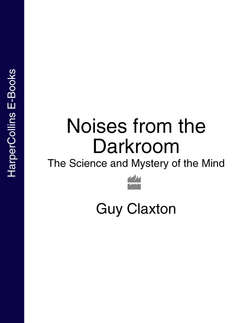Читать книгу Noises from the Darkroom: The Science and Mystery of the Mind - Guy Claxton - Страница 31
Priming
ОглавлениеOne very important feature of the octopus colony is that, even though an individual or a gang may be asleep, they may be sleeping more lightly or more heavily as a result of stimulation which is not yet strong enough to wake them up fully. So if an octopus or a gang of octopuses, A, can sometimes awaken gang B and sometimes gang C, which one actually wakes up – i.e. which direction within the octopus colony the flow of ‘wakefulness’, or activity takes – will depend on the relative level of this ‘priming’ of B and C, as well as on the long-term state of their connections to A.
In fact this phenomenon of priming can operate more generally than between single octopuses, or individual gangs. We could suppose that buried in the tangled heap are groups of octopuses with different musical tastes. For one group Miles Davis tends to make them sleep more lightly, while Madonna lulls them into an even deeper slumber; for another group, Madonna gingers them up, while Mozart makes them insensitive to almost anything. Thus the ‘path’ that the area of wakefulness takes through the colony depends on what music happens to be playing. The difference might be sufficient to make A wake up B when the background music is jazz, but C when it is Country and Western. In other words the behaviour of the whole community is highly context-dependent and situation-specific. The effect of any particular stimulus depends on the state of the whole system – its priming, its state of sedation, its tiredness – as well as on its whole idiosyncratic history of who has woken up whom in the past. And conversely an individual input can ‘set’ whole areas of the community to be either more or less sensitive to what happens next.
